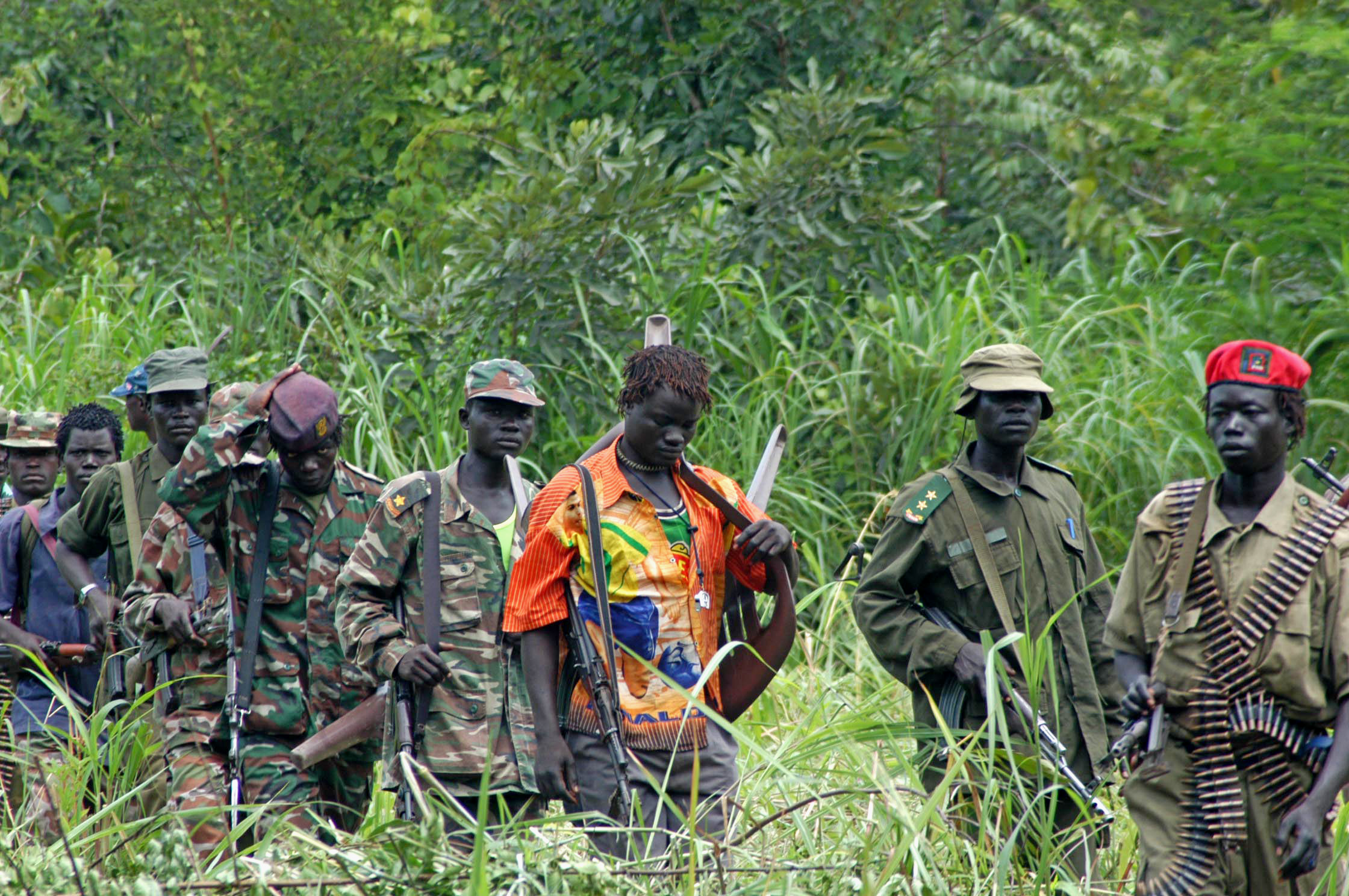
Enough Project Policy Alerts provide a reaction and set of recommnendations to a significant development designed for policymakers, advocates, and other influential people participating in the policy making process.
Download the full PDF version here.
Joseph Kony has a window to regroup the Lord’s Resistance Army in the Central African Republic, which risks reversing gains made in dismantling the rebellion. The U.S. military advisors deployed with Uganda against the LRA have cut rebel attacks by 53 percent over the last two years, but the progress is now in jeopardy because the mission has halted operations to find Kony and his top commanders since March.
Based on new information from Enough Field Analyst Kasper Agger reporting from eastern CAR, the situation has now become more urgent because the heavy rainy season is about to hit CAR in July. The LRA has used the rainy season for years to hide in the more dense forest cover, reorganize, and stealthily abduct fighters to replenish its ranks. This trend was mitigated last year by the mainly Ugandan and U.S. assisted tracking missions, but if the soldiers continue to sit in their bases, the LRA will now have the opportunity to rebuild, since they will not be on the run.
The results of the suspension are already visible in CAR. The LRA is conducting its most violent attacks in CAR, and there have been no defections in CAR over the past two months, according to the officers on the ground. Moreover, the Ugandan army officers tracking Kony say that it is unavoidable that they will risk losing track of the LRA groups soon, if they do not begin tracking operations again. Aerial surveillance operations have continued during the suspension, and the U.S. is now providing additional flight time for these missions. However, the spy flights will be much more difficult during the rainy season, when the tree cover will be dense and increasingly difficult to find the LRA fighters who frequently do not dress in army uniforms.
The counter-LRA mission, officially known as the African Union Regional Task Force, has already caused the defection of as much as 15 percent of the LRA’s core fighting force, and LRA attacks against civilians are lower than at any time since 2007. To their credit, the advisors have invested much more in defection efforts in northern Congo, where they have been dropping flyers and broadcasting “come home” messages from low-flying helicopters. But those operations have been shut down in CAR, and the critical military component of the counter-LRA mission is in a deep crisis. The Ugandan army remains reluctant to restart any military operations. Their main argument is that once they start to move around, they will be exposed to attacks from Seleka factions and local militias that have become much more active in the area. The May 24 attack by a South Sudanese gang in Obo, eastern CAR is a clear example of how volatile and unpredictable the operational environment has become.
Meanwhile, Seleka continues to send mixed signals. Seleka leader and interim CAR President Michel Djotodia endorsed the mission privately when talking to the African Union, but at the same time a delegation of senior Seleka officials visited Obo at the end of May and threatened to send their rebels here and that the Ugandan army should leave. They claimed the Ugandans had no business in CAR, since they have not been able to protect civilians and end the LRA after so many years. Seleka launched its own counter-LRA operation in Bria, 600 miles west of Obo, but did not share that information with other groups.
The Ugandan soldiers deployed in CAR are restless and eager to get back into the field, but they remain disciplined, according to local communities. Officers express frustration but need the political backing to restart. The planned African Union peacekeeping operation in CAR would significantly help Ugandan confidence to restart the counter-LRA operations, which would help guarantee more stability nation-wide.
What can be done to change the situation?
- The Obama administration should work with the African Union at a high level to secure an official written agreement with Seleka that authorizes the A.U. Regional Task Force to restart operations. The accord should highlight a clear public endorsement by Seleka of the A.U.-RTF and an agreement of non-interference with the counter LRA operations. A formal green light would be the first critical step to restarting the operations, recognizing that the area of operations will be limited at first.
- The U.S. should work within the U.N. Security Council and the African Union to boost the number of deployed troops for the broader Economic Community of Central African States stabilization mission for the Central African Republic to 2,000 and to support more active patrolling.
- The U.S. and European Union, together with international and local partners, should increase training and logistical support and ensure sufficient communications equipment to enable the full operationalization of the A.U. Regional Task Force.
Download the full PDF version here.
Photo: Members of Joseph Kony's LRA rebel group (AP).

